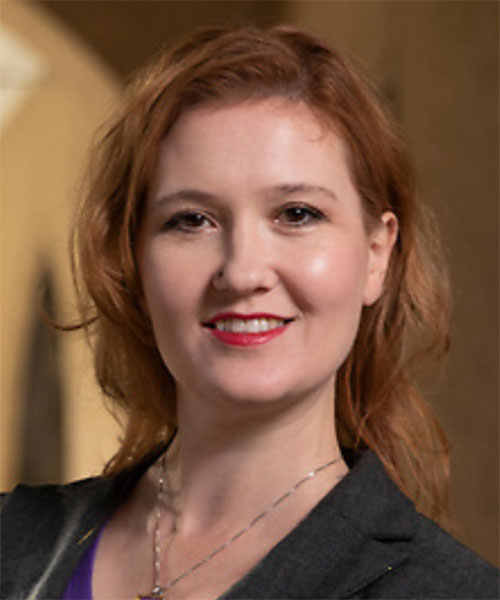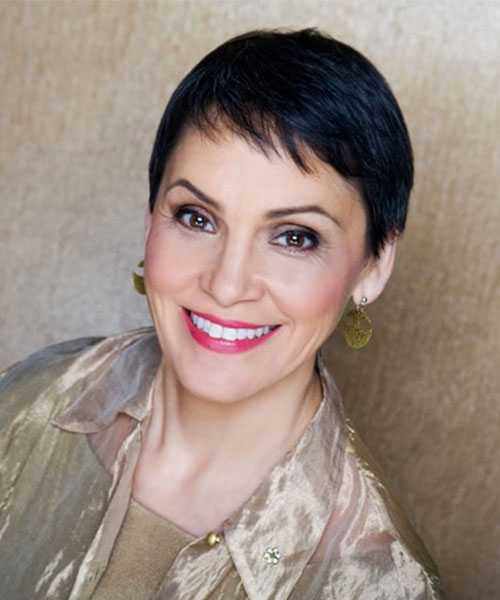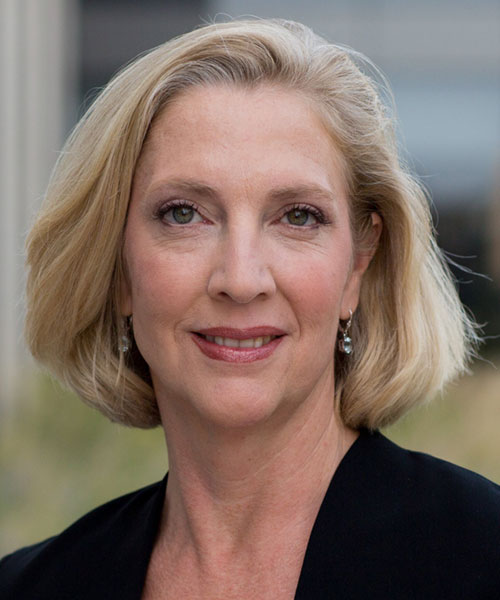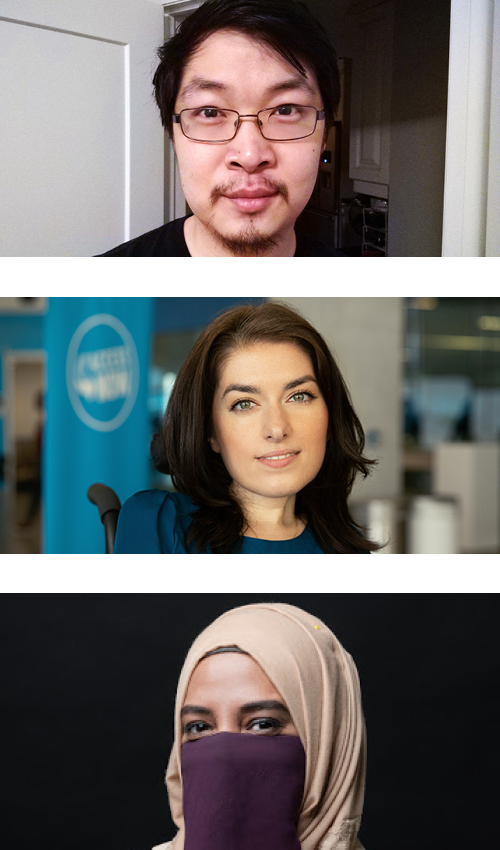Keynote Speakers

Dr. Sasha Thackaberry
Vice-President, Student Success, Pearson
Beyond Resilience: Leveling Up to an Anti-Fragile Future in Higher Ed
Dr. Sasha Thackaberry serves as the vice-president for student success at Pearson, where she leads the learning design and student retention teams for 25 universities. She was formerly the vice-president for online and continuing education at Louisiana State University (LSU), leading fully online programs, support for online and blended courses, and continuing education that encompasses professional development, K-12 and lifelong learning. She built an internal OPM with a stackable, pathway strategy moving from supporting 804 students to over 12,000 across the family of LSU institutions.
Previous to her current post, she was the assistant vice-president for academic technology, course production and new learning models at Southern New Hampshire University. She is the chair of the executive committee for the Western Interstate Commission for Higher Education’s Cooperative for Educational Technologies (WCET), and the co-chair for the Council Chief Online Learning Officers through UPCEA, on the board for Quality Matters, and on the advisory committee for the national CHLOE survey, and is on the 7 Things Advisory Committee for EDUCAUSE.
She has served as a consultant for K-12, community college, non-profit and corporations in instructional design, professional development and elearning ecosystems. She has also held a variety of roles spanning the field of e-learning and innovation, including as the director of eLearning technologies, manager of next generation learning and senior instructional designer at Cuyahoga Community College, and as the online learning coordinator at WVIZ/PBS ideastream, a designated edtech agency for the state of Ohio where she ran online programs for professional development of in-service K-12 faculty statewide.
Dr. Thackaberry has published articles in Inside Higher Ed, EDUCAUSE Review, eLearn Magazine, Distance Learning, e-Literate, WCET, evoLLLution, and the League for Innovation’s Learning Abstracts. She is the co-recipient of the 2013 MOOC Award for Excellence through the Open Education Consortium, and a 2010 Innovation of the Year Award through the League for Innovation. Sasha holds a PhD in higher education administration with a research focus in competency-based education as well as an MAT from Kent State University. Her BFA in dance is from the University of Akron.
Session details
In our post-pandemic world, how can institutions best build beyond resilience, focusing on the future state of a flexible and responsive higher education organization? Looking at examples from both inside and outside of higher education institutions, we’ll examine how to get to an anti-fragile future faster. Now, all institutions have had a crash course in online learning creation, old models—like hyflex and synchronous online—have had a sudden and forceful renaissance. Though many IT divisions were ready to support this, not all academics were fully prepared. Significant learnings came out of this disruption, but as the world increasingly heads back to “normal”, will that focus on moving fast, cutting through red tape and focusing on the student experience remain?
Other external pressures grew as well, increasingly focused on workforce outcomes and short-form learning opportunities. These are easy to imagine but difficult to implement and knit into the fabric of an institution. There are those at the forefront of the field in pursuing these newly-sized and multi-modal approaches in a future-proofed way.
What if our learning institutions could take a dramatic leap forward, becoming more relevant, more impactful, more meaningful yet? How can we create the learning institution of the future‚fusing the technical needs with the learning experience? From the student learning experience to the organizational and cultural focus areas needed to build to that experience, real-world examples and innovative approaches will be introduced along with a challenge: What happens beyond resilience, and how can we set up our organizations to get there?

Susan Aglukark
Juno Award-winning Aboriginal recording artist and motivational speaker
NOMAD: Correcting the Narrative
A Canadian cultural treasure, Susan is the first Inuk artist to win a Juno and a Governor General’s Performing Arts Award for lifetime artistic achievement. She is an officer of the Order of Canada, holds several Honorary Doctorate degrees and has held command performances. Through songs and stories, Susan will describe her personal journey from small town Nunavut to headlining within two years with no musical orthodoxy to draw from.
Session details
This presentation is a multi media/speaking and singing presentation on the last several thousand years of Canadian Inuit history developed and presented by Inuk singer/songwriter, Susan Aglukark, O.C.
Through songs, stories, film, photos and music videos, NOMAD will take you on the journey of the Canadian Inuit over the last several thousand years shedding light on some of the psychological and cultural impacts of rapid change in the North. NOMAD also gives a glimpse of the resilience and determination of a people who have maintained a quiet dignity despite near annihilation by disease and rapid change, a glimpse of the strengths of the traditional culture. While NOMAD helps us better understand the effects of colonization and generational trauma caused by the Canadian government's residential school/assimilation policy on Inuit, viewers also gain an understanding that we as Indigenous (artists) work with and from for our own respective healing and learning.
NOMAD in its format(s) is a utilization of Indigenous stories weaved from our respective collection of resources, “research”, bodies of work and methods of sharing, music videos, film clips, maps and facts—a process of discovery that has been a healing process in itself.

Melissa Hathaway
President, Hathaway Global Strategies
Cyber Insecurity: How Malicious Actors are Exploiting ICT to Undermine Trust and Exert Leverage
Melissa Hathaway is globally recognized as a thought leader in the fields of cybersecurity and digital risk management, and has relationships with the highest levels of governments and international institutions, including NATO, the ITU, the OAS, and the World Bank. She has a distinguished affiliation at Harvard Kennedy School’s Belfer Center for Science and International Affairs. Internationally, she advises programs and research initiatives at: the Center for Asymmetric Threats Studies — National Defense College, Sweden; the Digital Science Institute — European School of Management and Technology, Germany; the Centre for International Governance Innovation, Canada; the Kosciuszko Institute, Poland; and CyberLaw Research Program at Hebrew University, Israel.
Ms. Hathaway served in two U.S. presidential administrations where she spearheaded the Cyberspace Policy Review for President Barack Obama and led the Comprehensive National Cybersecurity Initiative for President George W. Bush. She built a broad coalition from within the Executive Branch for two presidents, developing a cybersecurity strategy covering unprecedented scope and scale that will now facilitate revolutionary improvements for the United States to secure and defend its critical national infrastructures. She received the National Intelligence Reform Medal, September 2009 and the National Intelligence Meritorious Unit Citation, December 2011 for her leadership.
As president of Hathaway Global Strategies, she consults Fortune 500 companies on cybersecurity, enterprise risk management, and technology assessment. She helps organizations understand their most critical assets, services and data, and maps digital risks to the organization’s business, financial and risk objectives, and advises clients regarding industry leading practices, emerging cyber threats, policy initiatives, regulation, legislation, court decisions or other industry matters that may affect their current and future business. Having served on the board of directors for four public companies and three non-profit organizations, and as a strategic advisor to a number of public and private companies, Ms. Hathaway brings her clients a unique combination of policy and technical expertise, as well as board room experience that allows her to help clients better understand the intersection of government policy, developing technological and industry trends, and economic drivers that impact acquisition and business development strategy in this field.
Ms. Hathaway has a BA from The American University in Washington, D.C. She has completed graduate studies in international economics and technology transfer policy, and is a graduate of the U.S. Armed Forces Staff College, with a special certificate in Information Operations. She publishes regularly on cybersecurity matters affecting companies and countries; these articles can be found on the Harvard Kennedy School’s Belfer Center for Science and International Affairs website (external link) .
Session details
Over the last 30 years, governments, companies and citizens have become critically dependent on the internet and information communications technologies (ICT). The private sector is driving innovation and adoption of technology with the promise of lower costs, increased productivity and consumer usability without much discussion of security. Our governments embrace this technological transformation to modernize infrastructures, enhance competitiveness and drive GDP growth.
Yet, the threat to our networked systems and infrastructures is real and growing. Our adversaries are targeting and undermining the software supply chain and turning code into weapons and they are achieving remarkable returns on their investment(s)—access to thousands of systems and potentially millions of machines that provide the avenues to illegally copy information, manipulate written communications, disrupt services, destroy or alter data, impersonate legitimate people, spread misinformation and even control industrial control systems. Ms. Hathaway will discuss multiple dynamics contributing to our cyber insecurity. She will highlight the risks we face and share ideas about how to manage them.

Andrew Young, Maayan Ziv and Sakeena Mihar
Founder and Director, Vaccine Hunters Canada; Founder and CEO, AccessNow; Founder, Savyn
Andrew Young
Andrew Young is founder and director of Vaccine Hunters Canada, a volunteer community with the mission of connecting eligible Canadians with COVID-19 vaccines. He managed to get his parents vaccinated and started Vaccine Hunters Canada to help others protect their loved ones by posting vaccine availability via social media. Since March 2021, the group grew to include a network of over 100 volunteers from "coast to coast to coast," all of whom have worked tirelessly to provide answers, information, and support to millions of Canadians on several social platforms. At their peak they had close to 500,000 followers and have helped millions of Canadians get vaccinated. During the day, Andrew works full-time as a web developer at Toronto Metropolitan University (formerly Toronto Metropolitan University). Find more on Andrew's Twitter account (external link) .
Maayan Ziv
Maayan Ziv is an activist, photographer and entrepreneur. In 2015, she launched AccessNow, a mobile app and website that collects and shares information about the accessibility status of places worldwide. What began as a response to her frustration when trying to navigate inaccessible places, AccessNow soon grew to become a mission-oriented social start-up. Within just a couple years, AccessNow has vocalized a movement for inclusion, inviting people of all abilities to contribute to the platform.
As CEO of AccessNow, Maayan has created a powerful shift in thinking about the importance of accessibility in our world, from accessible technologies to infrastructure, public policy, media and communications. To date, AccessNow has shared accessibility information in over 35 countries.
An influential public speaker who is often in the media, Maayan collaborates with private sector companies as well as government and not-for-profit organizations. She is leading a movement, challenging norms and empowering others to make the future accessible and inclusive for all. Maayan and her work with AccessNow have received numerous awards including: Canada’s Top 40 Under 40 (2021), the Governor General’s Innovation Award (2020), WXN Top 100 Canada’s Most Powerful Women (2018), City of Toronto Access Award (2016), David C. Onley Leadership in Accessibility Award (2016).
Sakeena Mihar
Sakeena is the founder and CEO of Savyn, an award-winning social impact venture for inclusive digital mental health care providing virtual PTSD therapies in multiple languages based in Toronto, Ontario. Savyn removes barriers to accessing mental health support to heal trauma for vulnerable groups like refugees, immigrants, veterans and other trauma survivors. Savyn has won the Desjardin Cooperathon - Social Impact award, PennyAppeal Social Accelerator fund and is currently being incubated at Biomedical Zone, a partnership with St Michael’s hospital, Toronto Metropolitan University Venture Zone and Social Ventures Zone.
Sakeena also wears other hijabs in addition to being a founder. Sakeena is an equity, inclusion and social justice consultant and trainer. She runs workshops on Islamophobia, bystander intervention, equity and inclusion issues for several organizations. She is also a speaker on gendered Islamophobia and spoke at the White Privilege conference in Toronto and at other events. She co-founded and is the co-chair of the first Muslim Faculty and Staff community network at Toronto Metropolitan University (formerly Toronto Metropolitan University), advocating for systemic changes and implementing policy changes. She has successfully raised funding for the network, held well-attended university-wide events including the first-ever formal Eid lunch, panels on Islamophobia for the White Privilege Conference and the Canadian Muslim identity.
Session details
In this panel discussion, Andrew Young, Maayan Ziv and Sakeena Mihar will tell the stories of how they identified the accessibility and service gaps that lead each of them to create unique online applications that were designed to better the lives of those in their communities. Learn what drove them to embark on their journey to build their mobile apps, Vaccine Hunters Canada, AccessNow and Savyn, the challenges and barriers they have overcome, and their plans moving forward.